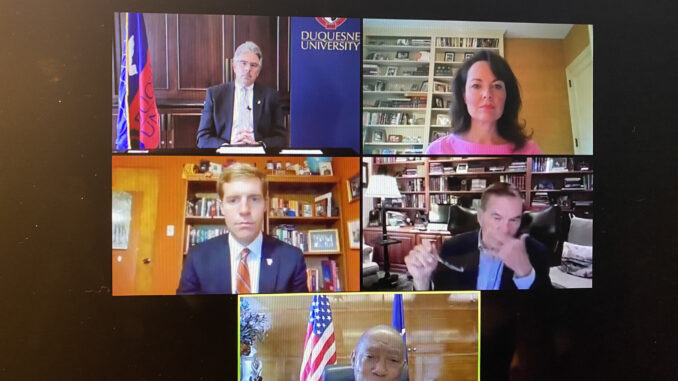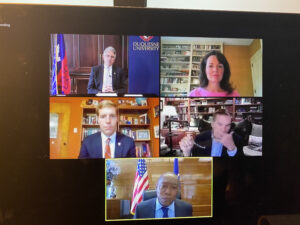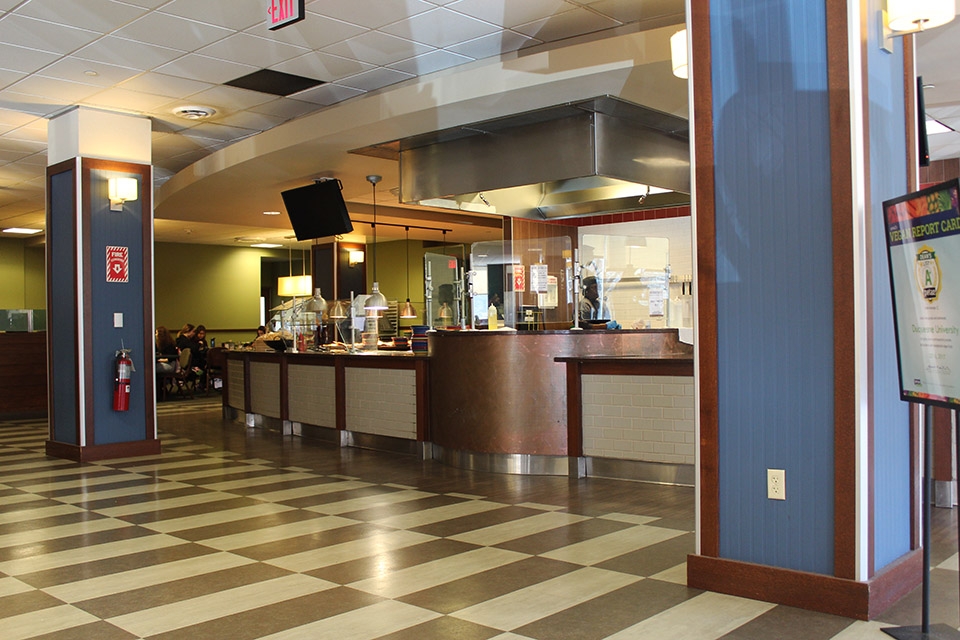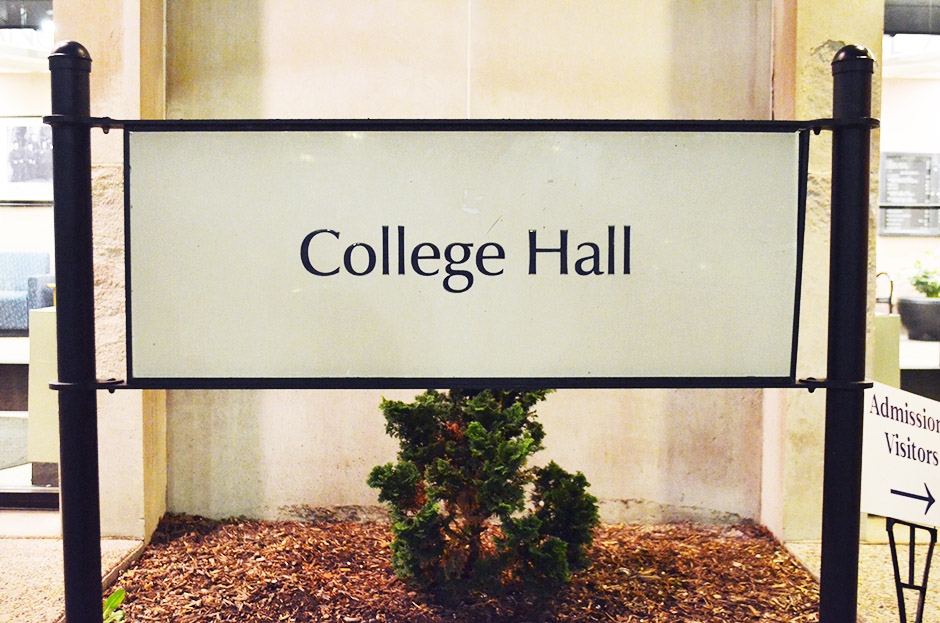
Colleen Hammond | News Editor
10/22/2020

Panelists spoke on the need for bipartisanship and collective patriotism.
On Wednesday, Oct. 21, the office of the Duquesne University President hosted the highly publicized virtual event “Politics, Contentious Elections and Civil Discourse.”
Moderated by Duquesne University President Ken Gormley, the event featured a lengthy and full discussion on the value of civil discourse in democracy from both sides of the aisle and how the U.S. can move forward in a time of intense political deadlock.
The panel included a wide variety of local and nationally known political figures including Tom Ridge, former governor of Pennsylvania and secretary of the Department of Homeland Security; Mayor Sylvester Turner of Houston, Texas; U.S. Rep. Conor Lamb (D-PA); and Elizabeth Preate Havey, secretary of the Republican Party of Pennsylvania.
After all the panelists were introduced by Gormley and Student Government Association President Kallie Crawford, a pre-recorded opening remark was provided by U.S. Sen. Bob Casey (D-PA).
In this video, Casey proceeded to set the tone for the event and offered “not wisdoms,” he said, but “insights from the road.”
He boasted of his strong record working with his long-time Republican colleague, U.S. Sen. Pat Toomey (R-PA), and that despite their ideological differences, the two senators have been able to successfully appoint numerous judges over their years of work together.
“Try not to denigrate someone personally,” Casey said in relation to discussing politics with disagreeing parties.
His sentiment was echoed in a written statement by Toomey, who suggested that viewers “stress-test one’s beliefs” to ensure they hold up to scrutiny.
Collectively, the panelists shared their suggestions for how to combat the extreme political polarization seen across the U.S. in recent years, heightening with the current election.
“The ‘art of the deal’ is really the art of compromise,” Ridge said.
He voiced his opinion that the real, impactful change can only happen in this country when politicians and citizens reach across the aisle.
“Highway or my way: it doesn’t work, not in the U.S.,” Ridge said.
He further emphasized the need to work together in times of great tribulation. Ridge noted that the best way to approach contentious political discussion is “openly, passionately and respectfully.”
“You are not born a Republican or Democrat,” Ridge said. “You’re born an American.”
After Ridge spoke, Turner, a longtime friend and colleague of Gormley, attempted to illustrate a more practical guide of how to properly engage in productive civil discourse. He stated the importance of making decisions and basing beliefs on more than mere feelings.
“You are entitled to your own opinions,” Turner said. “You are not entitled to your own set of facts.”
Turner also spoke about the importance of developing and allowing one’s opinion to evolve based on relevant facts and new information.
“There’s nothing wrong with changing,” Turner said. “There’s nothing that says just because you started here means you have to end up there.”
Gormley echoed Turner’s point by stating that on the occasions where he has changed his views, he “gained respect” and felt that he “listened to people.”
Turner also reminded the audience about the importance of civility and respect in civil discourse and political discussion, frequently stating that after a conversation occurs, one should always be able “to sit down to breakfast, lunch, dinner or grab a drink with the other person.”
All the panelists stressed the importance of remembering the dignity and respect for their fellow human beings during difficult and contentious discussions.
“You start from there and work for common ground,” Ridge said.
In addition to this segment on practical attempts at civility, the panelists went on to discuss the damaging effects social media and life in the public arena.
“It (politics) is a bloodsport,” Preate Havey said.
She said that she has been the victim of frequent “below the belt personal attacks” during her long career in politics. To avoid these negative, harmful and sometimes threatening attacks, Preate Havey said that she simply doesn’t read them. These comments, mostly made online from people with opposing political ideologies, have become more frequent and intense in recent years.
“Because you’re involved in politics, all rules of decorum are gone,” Preate Havey said.
She noted that all people in politics — especially her fellow panelists — develop “a thick skin” and “an inner strength.”
“The number one thing we need to agree on is love of country,” Preate Havey said.
Subsequently, Gormley led the discussion into matters of racial justice issues and increasing racial tensions as a result of a new civil rights movement making way across the U.S.
“When you combine race and politics, it can be highly combustible,” Turner said.
He said that while these conversations about race in the U.S. are desperately needed, there is a select group of people “who have made up their minds a long time ago.”
“If you try to plow down a stump, you’ll be there all day,” Turner said.
However, Turner and his fellow panelists applauded students for attending the event, frequently stating the value of young people in politics.
“I think young people feel a sense of urgency about the issues we’re facing today,” Lamb said.
Lamb, one of the youngest members of Congress, was vocal about the importance of young people participating in the democratic process.
“They (government institutions) are the way we make change,” Lamb said.
Despite Lamb’s personal disappointment and slight disillusionment with the U.S. government during his time in the Marine Corps in the early 2000s and 2010s, he said that he hopes his work “renews faith in democracy for another generation.”
As the discussion concluded with a few student questions about mail-in voting and political opponents refusing to accept the results of an election, the panelists held to the theme of the event. They repeatedly restated the importance of respecting others’ views in order to engage in an effective dialogue that will propel the nation forward.
“Politics will always be divisive,” Casey said. “But we have to find a way to move forward.”




